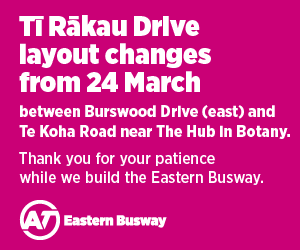
Ministry of Health Covid-19 update
August 6, 2020
There are no new cases of Covid-19 to report in New Zealand today.
It has been 97 days since the last case of Covid-19 was acquired locally from an unknown source.
One previously reported case is now considered to have recovered, so there are now 23 active cases in managed isolation facilities, and none of those people are receiving hospital-level care.
Our number of confirmed cases remains at 1219.
Yesterday our laboratories processed 5020 tests, bringing the total number of tests completed to date to 482,929. There were 290 swabs taken in managed isolation and quarantine facilities yesterday.
This rise in testing numbers is really encouraging and we are grateful to everyone that has come forward to be tested – please continue to seek advice on getting a test if you have cold or flu-like symptoms. Thank you also to the many people including health professionals involved in taking swabs, processing them and organising testing facilities.
Pop-up centres
As we saw on Tuesday, the pop-up testing centres have proved to be extremely well used.
The testing provides great reassurance for Queenstown locals and the wider country as well as in getting our testing numbers up to the level we need to be assured there are no cases of Covid-19 in our community. There were 1076 swabs taken in Queenstown and all but seven have now been processed and all those have returned a negative result.
There will be pop-up centres in other parts of the country as part of our ongoing community testing.
Southern DHB is operating a pop-up in Milford township today until 3pm.
Four Auckland Community Testing Centres were set up last week in Northcote, Henderson, Grafton and Wiri as part of a new, more sustainable model for community testing. They are supported by four new community mobile testing units. An additional pop-up unit will be stood up in South Auckland by the weekend – this will be resourced by one of the new mobile testing teams.
There will be an additional centre in Christchurch on Saturday.
Mid Central will establish two testing stations in Palmerston North on Friday – one in the carpark of New World Pioneer and the other at an event at the Pasifika Community Centre at Bill Brown Park.
And Taranaki is holding a pop-up testing clinic in central New Plymouth on Friday from 1-3pm in the New World carpark for members of the public to get swabbed.
Please make use of these pop-up centres – getting a test helps us rule out cases of Covid-19 in our communities, and you are helping keep your families and your team of five million safe by getting a swab.
Masks
The Ministry of Health has updated its advice on the use of masks by the public as part of New Zealand’s ongoing response to Covid-19.
As part of our collective preparedness for a possible further outbreak of Covid-19, the Ministry is recommending households add masks to their earthquake emergency kits.
It is not necessary for the public to wear masks at Alert Level 1, because there is no evidence of community transmission in New Zealand.
Masks will be most useful when Covid-19 is present in our community and people are in situations where they are in close proximity to each other.
They are particularly useful in situations where physical distancing cannot be maintained. A mask helps stop droplets spreading when someone speaks, laughs, coughs, or sneezes, including someone who has Covid-19 but feels well or has no obvious symptoms.
Masks are just one component of our strategy – they complement the public health measures we have all become familiar with this year:
- Good hand hygiene
- Physical distancing
- Staying home when sick
- Self/managed isolation and quarantine
- Testing
- Contact tracing
For the general public these do not need to be medical-grade masks – they could be reusable, fabric masks, or single use masks.
People at higher risk of severe illness from Covid-19 are recommended to wear a medical-grade mask to help prevent infection.
There is advice available on the Ministry website on how to wear and handle masks appropriately.
NZ Covid Tracer App
NZ Covid Tracer has now recorded more than 637,000 registered users.
There have been 84,279 posters created, and 1,941,990 poster scans. There have been 65,803 manual entries recorded in the app.
The Ministry has received feedback that some businesses have stopped displaying their QR codes. We are getting in touch with every organisation that has generated a code to provide another copy of their poster along with guidance on where to display it.
Government confirms CovidCard trial to go ahead
The Government has confirmed a community-wide trial of CovidCard technology as it explores options for Covid-19 contact tracing.
“Effective contact tracing is a vital part of the Covid-19 response,” Minister of Health Chris Hipkins said.
“While manual processes remain the critical component for contact tracing, we know digital solutions can help make contact tracing faster and more effective. This is important from a public health perspective and also in supporting our economic and social recovery.
“It’s fair to say that no single technology to ‘solve’ contact tracing has been identified anywhere in the world. That’s why we need to explore all available technology options.
“We are continuing to improve the NZ Covid Tracer app, which includes looking at how technologies like Bluetooth can be utilised to further support contact tracing and have also been investigating the proposed CovidCard.”
Initial assessments by the University of Otago highlighted that the CovidCard could make a real contribution to New Zealand’s contact tracing processes.
“The Government funded a trial run by the University of Otago in conjunction with the Nelson Marlborough DHB during lockdown. The trial found the CovidCard works under controlled conditions, so we believe there is merit in exploring it further,” Government Digital Services Minister Kris Faafoi said.
“After consultation with community leaders and iwi, we have selected the Rotorua region for a further trial involving around 250-300 people.
“This research will allow us to understand how the cards would work in a real-world scenario, whether they are compatible with our contact tracing systems, and whether the public would accept and use the cards if they were rolled out.”
Any decision on whether to deploy the CovidCard will be made later this year. At this stage it is not anticipated that the CovidCard would be mandatory.
“Key considerations will include whether the CovidCard meets high security and privacy standards and can be used by a wide range of New Zealanders.
“We’ll also be testing whether it effectively contributes to contact tracing and New Zealand’s efforts to eliminate Covid-19,” said Hipkins.







